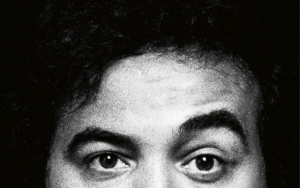BELUSHI: 4 STARS. “cautionary tale of excess, a tragedy of a talent taken way too soon.”
 John Belushi was only famous for five years before his untimely death at age 33 but in that short time his unique comedic quality left an indelible impression that resonates almost forty years later. A new documentary, now streaming on Crave, looks at his meteoric rise and tragic fall.
John Belushi was only famous for five years before his untimely death at age 33 but in that short time his unique comedic quality left an indelible impression that resonates almost forty years later. A new documentary, now streaming on Crave, looks at his meteoric rise and tragic fall.
Director R.J. Cutler uses the usual devices to tell the story. He mixes and matches archival material, animation, ephemera from Belushi’s life—handwritten letters, home movies etc—and news footage but his ace in the hole, the thing that gives “Belushi” its emotional wallop, are the audio interviews that tell the story.
In 2012 author Tanner Colby released a book called “Belushi: A Biography,” an oral history of the life and times of the “SNL” star. Colby did dozens of interviews with the people who knew Belushi best, Lorne Michaels, Dan Ackroyd, Harold Ramis, and friends and family, including John’s wife Judith. Those interviews form the backbone of the film, bringing with them a conversational, intimate and wistful feel.
The story beats are familiar. An uber talented rebel with a sensitive side finds enormous fame—at one point he had the number one comedy show on TV, movie in theatres and album on the charts—but is undone by personal demons. That’s the story in broad strokes. Filling in the small details is the expertly edited oral history who provide first hand details and impressions on Belushi’s life.
Most devastating of all are the handwritten letters from John to Judith that Cutler brings to life. From the playful tone of the early letters sent while they were courting to the final notes, written in desperation as drugs and depression debilitated the actor, these notes, written in a messy scrawl and often containing funny self-help lists, provide more insight into the Belushi’s mind frame that no talking head interview could ever hope.
“Belushi” has gaps. The warts and all depiction of Belushi’s drug habits is front and center but the misogyny of the early “SNL” days, for instance, is brushed over in a quick passage.
Having said that, the doc packs an emotional punch in its final moments as Belushi’s nearest and dearest express regret for allowing their friend to lapse back into heavy drug use. It is heartbreaking stuff on a personal level for them. For the rest of us, as Belushi fans, the cutting short of his potential feels like a cautionary tale of excess and a tragedy of a talent taken way too soon.
